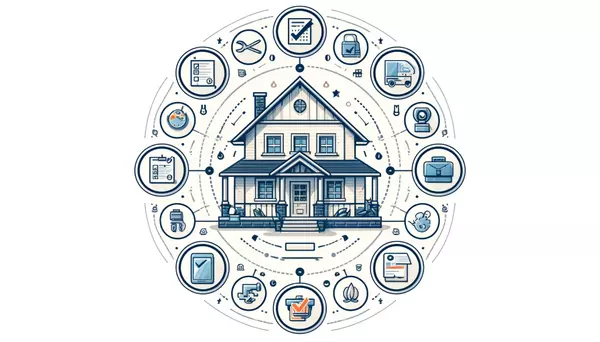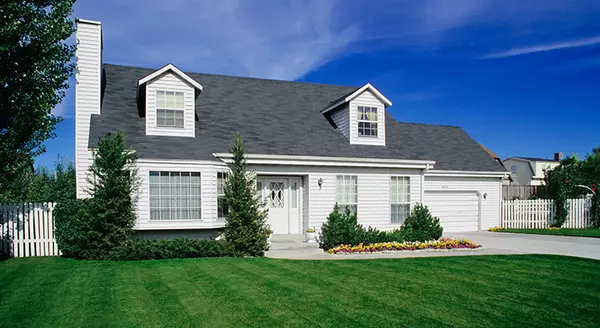
Moving to Florida? Your Ultimate Relocation Guide.
Packing up and moving to Florida is an exciting adventure full of important decisions. Whether you're moving across town or to a new city in the Sunshine State, this guide will provide you with the essential steps and insights to make your relocation as smooth as possible. Here’s everything you need to tackle (or may have missed!) so your big move doesn’t mean a big headache, only a big adventure! Selling Your Current Home If possible, selling your current home should be a high priority. Depending on your timeline, you can work with a real estate agent to get your home on the market as soon as possible. Here are some steps to get your home sale on the fast track: Get an Appraisal or Expert Assessment: Identify areas that could be quickly improved to increase the value of your home. Perform Minor Repairs: Ensure that any minor repairs are completed and learn if any major repair needs will surface during inspections. Stage Your Home: Invest in basic cosmetic improvements, such as paint or landscaping, to make your home more appealing. Professional Photos and Videos: High-quality visuals can help your home show virtually and attract more buyers. Decide on the Sale Price: Determine the sale price you need to happily move forward into your new community. Buying a New Home in Florida Moving to Florida comes with unique challenges and opportunities. From the outset, you’ll want to learn about comparable home prices and the cost of living in your new area. Here are some criteria and questions to consider when buying a new home: Neighborhood: Ensure it’s a safe neighborhood with a good reputation and acceptable commute distance. Price Range: Make sure the home is within your budget. Access to Amenities: Look for nearby amenities that are important to you. Property Taxes: Understand the property tax rates in your new area. School System: If you have children, research the local school system. Utilities and HOAs: Check on utilities and any Homeowners Association fees. Waste Management: Find out about local waste management services. Community Expectations: Learn about community expectations and upkeep. Home Management Resources: Identify resources like lawn care and housekeeping services. Final Logistics As you wrap up life in your old city and move to a new one, there are some essential final logistics to manage. Here’s what to keep on your list: Final Closing/House Sale: Ensure all paperwork and financial transactions are completed. Hand Over Keys and Clean Home: Provide keys and any necessary information about appliances, and clean the home for the new owners. Change Utilities: If required, arrange for utility services to be transferred or canceled. Set Up Mail Forwarding: Ensure your mail is forwarded to your new address. Arrange Movers and Storage: Book movers and, if necessary, a storage unit. Temporary Housing: If there’s a gap between your current home and next home, set up temporary housing or rent. Pack for a Short Trip: Prepare for the immediate needs during the transition. Set Up New Utilities and Internet: Arrange for utilities and internet services at your new home. Change Locks: Reprogram or change the locks for security. Get New Driver’s License and Plates: Obtain a new driver’s license and license plates if moving to a new state. Ready to Make the Move? I’ll be happy to join you as you prepare for this adventure. I have the inside scoop to get you where you're going. Contact me today to get started! For more tips on buying a home, check out our previous blog post, 6 Essential Things to Check Before Buying a Home. Elizabeth Steele PAProfessional Real Estate ConsultantMVP RealtyEmail: esteelerealestate@gmail.comPhone: 239-370-5988

How Big of a Home Do You Need?
Buying a home is a significant step, and determining the right size is crucial for your happiness and financial well-being. Whether you’re ready to stop pouring rent money down the drain and start building equity or just looking for a change, figuring out how big of a home you need is an essential first step. Here are some factors to consider when deciding on the ideal home size. 1. Home Size Based on Family Size Your family size plays a significant role in determining the size of the home you need. Consider the following: Average Household Size: From 1973 to 2015, the average household size declined from 3.01 people per household to 2.6 people per household, according to the U.S. Department of Commerce. Despite this, the average home size increased by about 1,000 square feet. Space Requirements: Most people require 200-400 square feet of living space just for themselves. Consider the number of bedrooms, bathrooms, and communal areas your family will need. Future Needs: If you have small children, factor in the additional space they’ll need for individual rooms, storage, and recreation areas. Conversely, if you have teenage children who’ll be moving out soon, you might not need as much space. Personal Tip: Always think about how your family size might change over the years. Planning for the future can save you from having to move again too soon. 2. Home Size Based on Location Location significantly impacts how much space you can afford. Here’s why: Regional Differences: The city, state, and region you live in can drastically affect the price per square foot. For example, you’ll end up spending more money for less space in Naples than you would in Lehigh Acres. Median Price Per Square Foot: Before making decisions about square footage, look up figures like the median price per square foot in your area. If you have your heart set on more expensive areas like Fort Myers Beach, you might have to settle for less home space. Example: With $300,000, you can buy: 1,500 square feet in Naples 2,800 square feet in Lehigh Acres 1,200 square feet in Fort Myers Beach 2,000 square feet in Cape Coral 1,600 square feet in Fort Myers Personal Tip: It’s essential to balance your desires with reality. A great location might mean compromising on space, but the benefits of living in a preferred area can outweigh the downsides. 3. Home Size Based on Lifestyle Your lifestyle can significantly influence the amount of space you need. Consider these factors: Hobbies: Do you have hobbies that require a lot of space? For example: Outdoor sports like fishing, boating, biking, and beach activities are very popular in Southwest Florida. Home improvement activities like yard maintenance, gardening, and carpentry. Music performance requiring a PA system, electric amplifiers, guitars, and keyboards. Visual arts requiring canvases, drop cloths, easels, and dry storage. Work Situation: If you work remotely, even part-time, you’ll need a dedicated office space to avoid distractions and maintain productivity. Personality Type: Introverts often need more space and alone time to recharge than extroverts do. If alone time is important to your mental health, consider this when deciding on home size. Personal Tip: Reflect on your daily routines and how you use your current space. This can help you determine how much and what kind of space you need in your new home. 4. Home Size Based on Type The type of home you prefer can also dictate the size. Here’s a quick comparison: Townhouse: Generally bigger than a condominium and smaller than a single-family home, averaging between 750 and 2,000 square feet. Condominium: Most condos are between 600 and 800 square feet but often make up for size with security and free repairs. Single-Family Home: New single-family homes generally offer more space, averaging around 2,600 square feet. Personal Tip: Your aesthetic preferences and lifestyle will likely trump size differences. Choose a home type that suits your needs and makes you feel comfortable and happy. Conclusion Although your family size, lifestyle, location, and preferred home type will all factor into your decision-making process, you don’t have to decide your ideal home size all on your own. An experienced realtor can work with you to find a home that’s just right. Don’t settle for indecision and doubt; call your trusted realty company today to get started hunting for your perfectly sized dream home. For more tips on buying a home, check out our previous blog post, 6 Essential Things to Check Before Buying a Home. Ready to Find Your Perfect Home? If you’re ready to discover your ideal home size and start your home-buying journey, contact Elizabeth Steele at MVP Realty. Let’s find the home that fits your needs perfectly! Elizabeth Steele PAProfessional Real Estate ConsultantMVP RealtyEmail: esteelerealestate@gmail.comPhone: 239-370-5988

6 Essential Things to Check Before Buying a Home
Buying a home is one of the most significant investments you'll make, so it's crucial to ensure you're making a sound decision. Prevent unexpected costs and headaches by thoroughly checking these six essential aspects before finalizing your purchase. 1. Date of Electrical Updates Old or faulty wiring can cause major safety concerns and expensive repairs. Here’s what to check: Proof of Updates: Ask to see documentation for any electrical updates. This can help verify that the electrical system is up to code. Electrical Panel: Inspect the panel for quality workmanship. Look for signs of tampering or poor installation. Outlet Testing: Bring a small device like a phone charger to test all outlets in the home. Ensure they are functioning properly and that there are enough outlets for your needs. 2. Date of Plumbing Updates Plumbing issues can lead to costly repairs and damage. Make sure to: Inspect Fixtures: Check all faucets, toilets, and showers for proper operation and any signs of leaks or corrosion. Appliance Testing: Test appliances that utilize plumbing, like dishwashers and laundry machines, to ensure they work correctly. Look for Leaks: Check under sinks and around toilets for signs of leaks, mold, or water damage. Even small leaks can lead to significant issues over time. 3. Date of Major Appliance Upgrades Non-functional appliances can be a financial burden. Ensure you: Check Upgrades: Ask about the dates of any major appliance upgrades. Newer appliances are often more energy-efficient and reliable. Test Appliances: Test the fridge, oven, microwave, dishwasher, washer, and dryer. Verify they are in good working condition and meet your needs. 4. Any Reported Foundation Issues Foundation problems can significantly impact the structural integrity of a home. Be on the lookout for: Sagging Floors/Ceilings: Signs of foundational problems that could indicate significant underlying issues. Bowed Walls: These can suggest serious structural problems that may be costly to repair. Musty Smells: Could be a sign of basement moisture problems, which can lead to mold and structural damage. 5. Age of the Roof The condition of the roof is critical for the overall health of the home. Consider: Roof Age: Roofs older than 25 years may need replacement soon, especially if they haven't been well-maintained. Shingle Condition: Look for cracked, buckling, or damaged shingles. These are signs that the roof may need repairs or replacement. Gutter Debris: Check for shingle granules or broken pieces. Excessive granules in gutters can indicate the roof is deteriorating. Signs of Rot: A sagging roof or growth of moss, mold, or fungi indicates potential problems that could lead to leaks and further damage. 6. Age of Windows/Any Window Updates Windows should be both functional and energy-efficient. Don’t forget to: Check Updates: Ask about the age of windows and any updates made. Newer windows can significantly improve energy efficiency. Test Functionality: Open and close all windows, doors, and shutters to check for drafts and ensure proper operation. Poorly sealed windows can lead to higher heating and cooling costs. A new home is a big purchase, and it's important to feel confident about your investment. By following these tips, you can avoid unexpected costs and ensure your new home meets your expectations. If you have any questions or need further advice, don't hesitate to contact me. I'm always here to help! Elizabeth Steele PAProfessional Real Estate ConsultantMVP Realtyrealestateservicenow.comEmail: esteelerealestate@gmail.comPhone: 239-370-5988
Recent Posts











